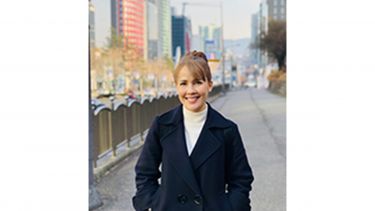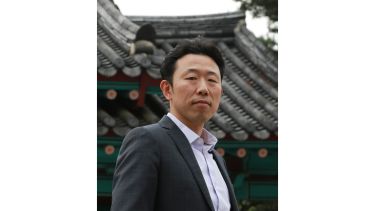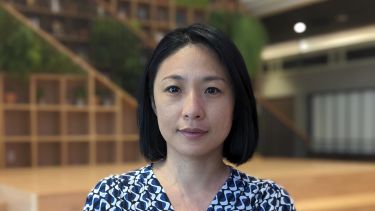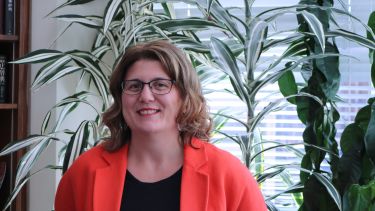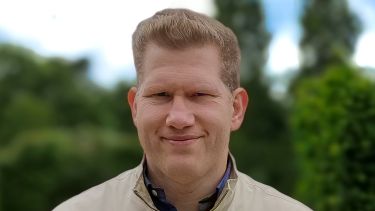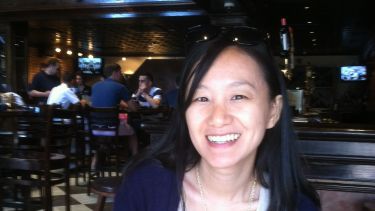Centre for Korean Studies Members
Get to know our members for the Centre for Korean Studies Below:
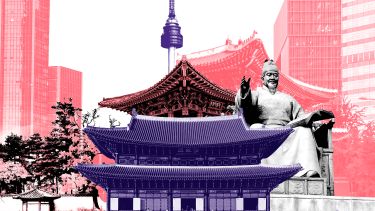
Dr Sarah Son
Dr Sarah Son joined SEAS in 2019. She completed her PhD on identity and inter-Korean relations at SOAS in London in 2014, before spending five years working in South Korea in the non-profit sector on North Korean human rights issues.
Her work there included human rights research and monitoring; reporting and media engagement; consulting with the United Nations, foreign missions and advocacy organisations; and project management of human rights documentation training for NGOs both in and outside Korea.
Her current research involves methods of monitoring and recording human rights abuses in North Korea through interviews with North Korean escapees to South Korea. Alongside this work, she is investigating the potential use of the data gathered on human rights abuses in current and future efforts to pursue accountability for violations.
Concurrently, Dr. Son conducts research on pop culture, identity and international relations in East Asia, including through a recent study on a globally popular television drama depicting North-South Korean relations.
Dr. Son also writes and supervises research on themes including migration and diaspora, human rights activism, memory and memorialisation, nation branding, identity, security and peace-building, with a focus on both the Korean Peninsula and East Asia more broadly.
Within Sheffield’s School of East Asian Studies, Dr. Son teaches on the Korean Studies undergraduate programme and the East Asian Studies postgraduate programme.
Dr Deokhyo Choi
Dr Deokhyo Choi is an ethnic Korean-born in Japan (third-generation zainichi Korean) and specialize in the history of modern Korea and Japan.
Before joining the University of Sheffield in July 2018, Dr Choi worked as a postdoctoral research fellow at the University of Cambridge (2013-2016) and the Research Institute of Korean Studies, Korea University (2017-2018). I also taught at Underwood International College, Yonsei University, from 2016 to 2018.
Throughout Dr Choi's journey in academia, they have been very fortunate to directly witness crucial historic events on the Korean peninsula and within Japan-Korea relations.
As a college exchange student at Yonsei University in 1997-1998, Dr Choi watched the unfolding of one of the most dramatic political events in post-liberation Korean history, as Kim Dae-Jung, a long-time democratic fighter and survivor of state terrorism, was elected President in the middle of South Korea’s unprecedented economic crisis.
In 2000, a sense of hope and buoyancy borne out of the first North-South Korean summit meeting could be felt everywhere among zainichi Korean communities, and this inspired me to write about how Korea was divided for my MA thesis.
In 2002, I was deeply puzzled to see unexpected social repercussions in Japan in the wake of the Prime Minister’s first visit to Pyongyang and started to consider how my historical research could engage with contemporary issues in Korea-Japan relations.
After a decade of sojourn in the US and the UK, I returned to East Asia and lived in Seoul from 2016 to 2018. I could again witness (and become part of) iconic moments of hope and history making in South Korea, where the series of citizens’ massive street protests in the piercing cold of the winter led to the “Candlelight Revolution” and the ousting of the corrupt President.
I could also learn firsthand what everyday life in the “post-Cold War powder keg” looked like while observing the political landscape of the Korean peninsula rapidly transforming from the nuclear (war) crisis to the North-South rapprochement and a remarkable détente between Washington and Pyongyang in June 2018.
My firsthand experience of these events profoundly nurtured my sense of the dynamics of historical change.
Dr Hannah Chang
Dr Chang is Lecturer in Korean Studies at the School of East Asian Studies, University of Sheffield. Her current research examines cultures of singing, listening, and writing in early Protestant churches in Korea. It explores these cultures’ links to forms of mobility and imagination that emerged from early-twentieth century transpacific geopolitics. Her wider research interests include transpacific music historiography, Korean music and the Cold War, and East Asian musical modernisms.
In 2021, she received an AHRC Research, Development and Engagement Fellowship for her project "Pacific Voicings: Korean Hymns and Prayers in the Age of Empires, 1884-1945." Her work has appeared in The Journal of Korean Studies, Ethnomusicology Forum, Japan Focus: The Asia Pacific Journal, and Twentieth-Century Music, among others. Before joining SEAS, she was a Visiting Assistant Professor of Music at New York University, a Research Professor at Ewha Women’s University, and a Postdoctoral Fellow at the Yale Institute of Sacred Music.
Professor Kate Taylor-Jones
Kate Taylor-Jones has quite a varied background with a broad expertise in many forms of visual arts. Her first degree was in English Literature at Goldsmith College, University of London and her MA and PhD were both from Exeter University. She joined Sheffield in September 2015 as Senior Lecturer in East Asian Studies and she was made Professor of East Asian Cinema in January 2019. She has been the recipient of a variety of grants from a range of funders including the AHRC, British Academy and European Research Council. She is co-editor of International Cinema and the Girl (2015) and Prostitution and Sex Work in Global Cinema: New Takes on Fallen Women (2017) and has published widely in a variety of fields. Her monographs include Rising Sun Divided Land: Japanese and Korean Cinema (2013) and Divine Work: Japanese Colonial Cinema and its Legacy (2017). She is editor-in-chief of The East Asian Journal of Popular Culture. Her current project – Shōjo Dreams and Unruly Idols: Ninagawa Mika, Miyake Kyoko and Ando Momoko, is forthcoming with Edinburgh University Press.
She has a longstanding record of external engagement – working with film festivals, distributors, schools, and diverse audiences on the topic of East Asian cinema and culture including the BFI Early Korean Cinema Series in 2019. She is currently working to curate a Korean Documentary series to be shown in the UK in 2024.
Dr Mike Prentice
I am trained as a linguistic and cultural anthropologist. My research broadly focuses on genres & technologies of communication, organisations & corporations, and work & labour cultures in contemporary South Korea.
Before joining Sheffield, I was a fellow at the University of Manchester where I researched digital security in organisations. Prior to that, I taught anthropology at Brandeis University in the US and held a Korea Foundation postdoctoral fellowship at the Korea Institute at Harvard University.
Dr Sojin Yu
As a sociologist whose research draws on interdisciplinary approaches, I focus on migration, race/ethnicity, gender, and nation in my research. I am interested in how these phenomena intersect with each other to inform the production of social inequality and everyday political understandings. I use both quantitative and qualitative research methods in my work.
I am currently working on two strands of research. The first is an examination of mixed-ethnic families and their use of language practices in contemporary South Korea. By studying how the social formation of language relates to individual positionalities and wider discourse of nation and citizenship, this project aims to uncover the intersectional ways in which national boundaries are drawn through language.
The other line of research investigates issues of women’s empowerment in the Global South, utilising comparative analysis and intersectional perspectives.
Dr Derek Kramer
Dr Derek Kramer is a historian of modern Korea, the global Cold War, and East Asian science and technology. He received his doctorate from the Department of East Asian Studies at the University of Toronto. Prior to taking up a lectureship in Korean Studies at the University of Sheffield, he held research positions at Korea University, the University of Cambridge, and the University of Wisconsin-Madison.
Derek’s research explores the cultural and intellectual dimensions of science, technology and infrastructure in colonial and Cold War settings. His ongoing book
project examines the fusion of the atomic age and postcolonial era in post-1945 North and South Korea. Portions of his research have appeared in publications like the
Journal of Asian Studies, International Review of Social History, and positions: Asia critique.
Shinhye Lee, PhD Student
Research topic: Gendered experiences and identities of North Korean female defectors who settled in the United States.
Shinhye has been conducting research on the gendered experiences and identities of North Korean female defectors who have resettled in the United States. She holds a Master's degree in International Relations from the Johns Hopkins University, School of Advanced International Studies (SAIS). Previously, she served as an instructor in the Department of World Languages and Cultures at American University in Washington DC, where she delivered seminars on the impact of climate change on North Korean women trafficking issues and conducted workshops on innovative online teaching methods utilizing authentic media materials. Her professional background includes working at various governmental agencies, including the U.S. Embassy, UK Embassy, and the Korean International Cooperation Agency.

